#stopanimalcruelty
Text
There is no excuse for animal abuse!
Money is not excuse for animal abuse!
Flavor is not excuse for animal abuse!
Profit is not excuse for animal abuse!
Family is not excuse for animal abuse!
Tradition is not excuse for animal abuse!
There is never an excuse for animal abuse!
Multi-part Series of Courage and Compassion on the Street, Part 6: Liberation for All - San Diego Animal Rights March
To watch the full program, please visit https://suprememastertv.com/en1/v/217866316304.html
A heartfelt thank you to all who took the extra step to advocate for our wonderful animal-people friends. @sandiegoveganactivists @dxe_sandiego
🌿 Be Vegan, Make Peace 🕊 Do Good Deeds 💗
SupremeMasterTV.com
#SupremeMasterTV#AnimalRights#NoAnimalAbuse#CompassionForAnimals#EndAnimalCruelty#EthicalLiving#AnimalLiberation#AnimalAdvocacy#AnimalLove#VeganActivism#CrueltyFree#SayNoToAnimalAbuse#JusticeForAnimals#StandUpForAnimals#StopAnimalCruelty#AnimalProtection#VoiceForAnimals#SanDiegoAnimalRights#CourageAndCompassion#AnimalActivists#LiberationForAll
2 notes
·
View notes
Text
Alleviate Dog Cruelty Problems

It's difficult for us as devoted pet owners to understand how someone could hurt an innocent animal, yet it does happen frequently.
Since animals lack the ability to speak for themselves, it is our responsibility as animal lovers to speak up for and defend them. This article will outline strategies for advocating for animals locally and globally, as well as how you may contribute to the prevention of animal abuse.
How can we encourage the end of animal abuse?
The majority of people who love animals want to help put an end to animal abuse, but many don't know where to begin. You can take the following actions.
Take care of your pets. As a pet owner try to recognize your pet's needs and meet them. Giving your pet happy experiences that truly improve its well-being is more important than merely attending to its basic requirements.
Fostering animals : One satisfying and cost-free way you can contribute to the end of animal abuse is to foster rescues. While the animal looks for its ultimate home, the majority of animal rescues will give foster parents all the food and supplies the animal need.
Modify your way of life : Refusing to patronize businesses that engage in animal abuse is an easy way to show your support for the cause. Try to support vegan companies who don't use animal testing in your transactions, and while you're in stores.
But bear in mind that "vegan" doesn't necessarily equate to cruelty-free; this is especially true when looking through cleaning supplies, cosmetics, and body care items.
Consider trying out a vegan lifestyle as well. Considering how embedded animal products are in our food culture, switching to a plant-based diet is sometimes the most difficult lifestyle shift for people.
Try making small changes to your diet, such as preparing one vegetarian meal a week, to cut down on the amount of animal products you consume if you are unable or unable to become a vegan.
Purchasing ethically and organically is another choice. Strict ethical criteria are in place at some well-known health food stores, such as Whole Foods, regarding the sourcing of animal products.
Encourage your kids to respect animals. Be an excellent lead by treating animals with respect. Teach kids to be kind and loving toward animals. As they get older, assist them in becoming the next wave of animal champions.
Neuter or spay your animals : It's essential to spay or neuter your dogs to avoid unwanted animals ending up at shelters or becoming the victims of animal abusers. To assist low-income households in affording these operations, the majority of localities provide affordable spay and neuter programs.
In regions where feral cat colonies exist, several communities also provide free trap-neuter-release programs aimed at reducing the number of stray animals. Get in touch with your local humane society or animal control agency to learn about your alternatives if you live in an area where there are a lot of stray cats.
Educate anyone in the surrounding area about the problem. Make people aware that they have the power to step in when they witness animal abuse or neglect, even torture. Animals have the right to exist pain-free, and if their rights aren't being upheld, it is our duty to intervene.
Let others know when you witness animal abuse: Be careful to notify the relevant authorities as soon as you see animal abuse. Time is particularly utmost in situations of severe maltreatment, thus the more quickly you contact the better the animal's chances.
You might want to think about reporting the event to your local humane organization as well as police enforcement. If at all possible, record the abuse with photos or videos. Photographic and video evidence will bolster the case and assist law enforcement in prosecuting the criminal as thoroughly as possible.
Encourage charity and animal rescue organizations:Supporting the local animal rescuers and organizations is a terrific approach to help put an end to animal abuse. If you are able, please donate; if not, you might want to think about volunteering.
Animal rescue organizations will also welcome non-monetary donations, such as used toys, blankets and meals for dogs, . One free method you can help and show rescue animals all the affection they deserve is to volunteer at animal care facilities and rescue organizations. Raising awareness of these groups' work may be accomplished even by just endorsing them on social media.
Take a stand: Write letters to state legislators urging them to pursue more severe penalties for those who mistreat animals. Another excellent strategy to get local politicians interested in animal rights concerns is to sign petitions. Call for stronger legislation to protect animals. Less occurrences of animal abuse will result from stricter legislation pertaining to animal care and heavier punishments.
Conclusion: We hope this inspires one to take morally and legally motivated action to end animal abuse. If you see animal mistreatment, report it, lead by example, and teach your kids to speak out for animals with no voice. These little actions can have a big influence on animals that are in need.
Dog Groomers in Kanpur
Dog Groomers in Ghaziabad
Dog Groomers in Pune
Dog Groomers in Mumbai
Source URL: https://www.mrnmrspet.com/blogs/alleviate-dog-cruelty-problems
#AnimalCruelty#DogAbuse#StopAnimalCruelty#AnimalRights#DogWelfare#AnimalProtection#AnimalRescue#AnimalLoversUnite#VoiceForAnimals
0 notes
Text
Understanding the Environmental Impact of Supporting the Meat and Dairy Industry
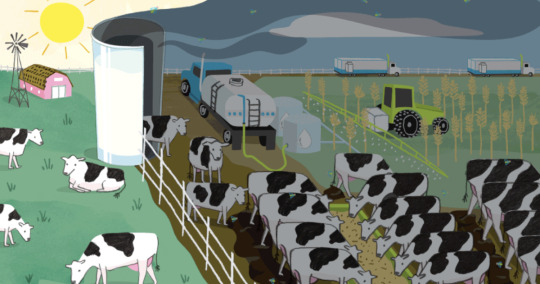
The meat and dairy industry has long been a staple in human diets and economies. However, as society becomes more aware of the environmental impact of our choices, the consumption of animal products has come under scrutiny. The production and consumption of meat and dairy products have been linked to significant environmental issues such as deforestation, water pollution, and greenhouse gas emissions. In recent years, there has been a growing movement towards plant-based diets and sustainable agriculture, highlighting the need to understand the environmental impact of supporting the meat and dairy industry. In this article, we will delve into the various ways in which the production and consumption of animal products affect our planet, and explore potential solutions and alternatives for a more sustainable future. By gaining a deeper understanding of the environmental impact of the meat and dairy industry, we can make more informed choices and work towards creating a more sustainable food system for ourselves and future generations.
Animal welfare and ethical practices.
One important aspect to consider when examining the environmental impact of supporting the meat and dairy industry is the welfare of the animals involved. Animal welfare encompasses the conditions in which animals are raised, transported, and slaughtered. Ethical practices, on the other hand, focus on the moral considerations and treatment of animals. Many consumers today are increasingly concerned about the ethical treatment of animals and are seeking out products that align with their values. This includes supporting farming practices that prioritize the well-being of animals, such as providing ample space, access to natural light and fresh air, and humane methods of slaughter. By considering animal welfare and ethical practices in our choices, we can contribute to a more sustainable and compassionate food system.
Water usage and pollution concerns.

Water usage and pollution concerns are also critical factors to consider when examining the environmental impact of supporting the meat and dairy industry. The production of meat and dairy products requires substantial amounts of water, from the cultivation of animal feed to the processing and cleaning involved in meat and dairy facilities. This excessive water usage can lead to strain on local water sources, particularly in regions already facing water scarcity. Additionally, the runoff from animal agriculture, which contains pollutants such as nitrogen and phosphorus from manure and fertilizers, can contaminate nearby water bodies, leading to water pollution and ecosystem disruption. Addressing these concerns requires implementing sustainable farming practices, such as efficient water management systems and proper waste management strategies, to minimize water usage and reduce pollution associated with the meat and dairy industry. By adopting these practices, we can work towards a more environmentally responsible and resource-efficient food system.
Deforestation and greenhouse gas emissions.
The meat and dairy industry also significantly contributes to deforestation and greenhouse gas emissions, further exacerbating the environmental impact of its operations. Large areas of land are cleared to make way for livestock farming and feed production, resulting in the loss of valuable forest ecosystems. Deforestation not only disrupts biodiversity but also reduces the Earth's capacity to absorb carbon dioxide and regulate climate patterns.
Furthermore, animal agriculture is a major source of greenhouse gas emissions, particularly methane and nitrous oxide. Methane, produced by livestock during digestion and manure decomposition, is a potent greenhouse gas that contributes to global warming. Nitrous oxide is released from the use of nitrogen-based fertilizers in feed crop production. These emissions greatly contribute to climate change and its associated impacts, such as rising temperatures, extreme weather events, and sea-level rise.
Mitigating these environmental issues necessitates adopting sustainable land-use practices, such as reforestation and agroforestry, to restore and protect forest ecosystems. Additionally, transitioning to more plant-based diets and supporting sustainable farming methods can help reduce greenhouse gas emissions associated with the meat and dairy industry. By understanding and addressing the link between deforestation, greenhouse gas emissions, and the support of the meat and dairy industry, we can work towards a more sustainable and environmentally conscious future.
Health effects of consuming meat and dairy.
Consuming meat and dairy products can have significant health effects on individuals. Research has shown that a high intake of red and processed meats is linked to an increased risk of chronic conditions such as heart disease, diabetes, and certain types of cancer. These products are often high in saturated fats and cholesterol, which can raise blood cholesterol levels and contribute to the development of cardiovascular diseases. Additionally, excessive consumption of meat and dairy can lead to weight gain and obesity, which further increase the likelihood of developing these health conditions. It is important for individuals to consider the potential health risks associated with consuming meat and dairy and make informed choices about their dietary habits.
Alternative protein sources and options.

In order to address the environmental impact of supporting the meat and dairy industry, it is crucial to explore alternative protein sources and options. Plant-based protein alternatives, such as legumes, tofu, tempeh, and seitan, offer a sustainable and nutritious alternative to traditional animal protein. These options are not only lower in saturated fats and cholesterol, but they also have a lower carbon footprint and require significantly less water and land resources to produce. Additionally, advancements in food technology have led to the development of innovative plant-based meat substitutes that closely mimic the taste and texture of animal-based products. By incorporating these alternative protein sources into our diets, we can reduce the strain on the environment while still meeting our nutritional needs.
Adopting a plant-based lifestyle.
Embracing a plant-based lifestyle can have a myriad of benefits for both our health and the environment. By adopting a plant-based diet, individuals can enjoy a wide array of nutrient-rich fruits, vegetables, whole grains, and plant-based proteins. This dietary approach provides ample fiber, vitamins, and minerals while significantly reducing the consumption of saturated fats and cholesterol found in animal products. Moreover, a plant-based lifestyle contributes to reducing greenhouse gas emissions, deforestation, and water pollution associated with the meat and dairy industry. It allows us to align our dietary choices with our values of sustainability and compassion, fostering a healthier planet for future generations.
Supporting sustainable farming practices.
Emphasizing the importance of supporting sustainable farming practices is crucial in addressing the environmental impact of the meat and dairy industry. Sustainable farming practices focus on cultivating crops and raising animals in ways that minimize harm to the environment while promoting biodiversity and ecological balance. This includes utilizing organic and regenerative farming techniques, minimizing the use of chemical pesticides and fertilizers, and implementing efficient water management strategies. By supporting sustainable farming, we can help preserve soil health, reduce water pollution, conserve natural resources, and protect wildlife habitats. Additionally, sustainable farming practices promote the well-being of farm animals, ensuring they are raised in humane conditions and minimizing their contribution to greenhouse gas emissions. By making conscious choices and supporting sustainable farming practices, we can contribute to creating a more sustainable and environmentally conscious food system.
Making informed and conscious choices.
Understanding the environmental impact of supporting the meat and dairy industry requires making informed and conscious choices. It is essential to educate ourselves about the various aspects of the industry, such as the energy-intensive processes involved in meat production and the significant greenhouse gas emissions associated with livestock farming. By being aware of these facts, we can make conscious decisions about our dietary and purchasing habits. This may include reducing our meat and dairy consumption, opting for plant-based alternatives, or supporting local and sustainable farming practices. Making informed choices empowers us to contribute positively to the environment and promote a more sustainable and responsible food system.
In conclusion, it is clear that the meat and dairy industry has a significant impact on the environment. From greenhouse gas emissions to land and water usage, the production of animal products takes a heavy toll on our planet. As consumers, it is important for us to educate ourselves on the environmental consequences of our food choices and take steps to reduce our reliance on these industries. Whether it be through reducing our meat and dairy intake or supporting sustainable and ethical farming practices, we all have a role to play in protecting our environment for future generations. Let us strive towards a more sustainable and compassionate food system.
FAQ
What are the main environmental impacts associated with the meat and dairy industry?
The main environmental impacts associated with the meat and dairy industry include deforestation for grazing and feed crops, greenhouse gas emissions from livestock, water pollution from manure runoff, and excessive water usage. The expansion of livestock farming contributes to the loss of biodiversity and habitat destruction. Additionally, the production and transportation of animal feed and the processing and packaging of meat and dairy products contribute to energy consumption and waste generation. Reducing meat and dairy consumption, promoting sustainable farming practices, and implementing stricter regulations can help mitigate these environmental impacts.
How does the meat and dairy industry contribute to deforestation and habitat destruction?
The meat and dairy industry contributes to deforestation and habitat destruction primarily through the expansion of livestock grazing areas and the cultivation of feed crops. Large areas of forests are cleared to make way for pastureland or to grow crops like soybeans, corn, and palm oil, which are used as animal feed. This clearing of land results in the loss of biodiversity and destruction of ecosystems. Additionally, the industry contributes to deforestation indirectly through the demand for timber to build infrastructure and the expansion of roads for transportation. The overall impact is the loss of valuable habitats for countless plant and animal species, leading to ecological imbalances and potential species extinction.
What is the carbon footprint of the meat and dairy industry compared to other sectors?
The meat and dairy industry has a significant carbon footprint compared to other sectors. According to studies, it accounts for roughly 14.5% of global greenhouse gas emissions, which is more than the entire transportation sector combined. Livestock production requires large amounts of land, water, and feed, leading to deforestation, water pollution, and emissions from manure. Additionally, the methane released by cattle is a potent greenhouse gas. Transitioning towards plant-based diets and implementing sustainable farming practices can help reduce the carbon footprint of the meat and dairy industry.
How does the meat and dairy industry contribute to water pollution and depletion?
The meat and dairy industry contributes to water pollution and depletion through several mechanisms. Firstly, large-scale livestock farming requires vast amounts of water for animal drinking, cleaning, and irrigation of crops used for animal feed. This puts a strain on water resources, especially in regions with limited water availability. Additionally, animal waste, including manure and urine, contains high levels of nutrients and pathogens. When not properly managed, these waste materials can leach into water bodies, leading to nutrient pollution and harmful algal blooms. Lastly, the use of fertilizers and pesticides in feed crops can also contaminate water sources through runoff. Overall, the meat and dairy industry's water-intensive practices and inadequate waste management contribute to water pollution and depletion.
What are some sustainable alternatives to supporting the meat and dairy industry that can help mitigate its environmental impact?
Some sustainable alternatives to supporting the meat and dairy industry include adopting a plant-based diet, reducing meat and dairy consumption, supporting local and organic food systems, promoting regenerative agriculture practices, and investing in alternative protein sources like plant-based meats and dairy alternatives. These alternatives can help mitigate the environmental impact of the meat and dairy industry by reducing greenhouse gas emissions, land and water use, deforestation, and pollution. Additionally, supporting these alternatives can contribute to biodiversity conservation, improve animal welfare, and promote a healthier and more sustainable food system.
#factory farming#go vegan#animals#animal welfare#animal cruelty#veganfood#veganism#animal rights#veganlife#StopAnimalCruelty#SaveTheAnimals#PlantBasedDiet
0 notes
Text
https://gofund.me/f69b49c6 https://gofund.me/f69b49c6
AnimalAbuse
AnimalCruelty
StopAnimalAbuse
StopAnimalCruelty
EndAnimalAbuse
EndAnimalCruelty
#animalabuse#animalcruelty#stopanimalabuse#stopanimalcruelty#endanimalabuse#endanimalcruelty#gofundme
1 note
·
View note
Photo
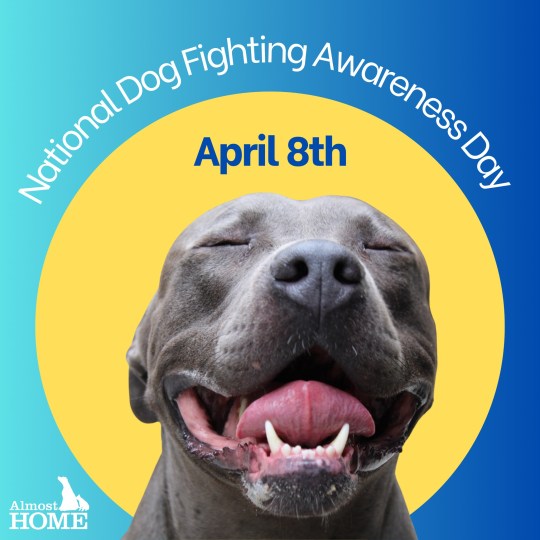
It’s National Dog Fighting Awareness Day. Today, (and every day) we should recognize the ongoing efforts to combat animal cruelty and raise awareness about the existence of dog fighting rings. Despite being banned in the entire country, there are still many of these cruel competitions happening. The American Society for the Prevention of Cruelty to Animals created this day as part of Prevention of Cruelty to Animals Month in April to encourage people to take action and speak out against this inhumane practice.
0 notes
Text
Newest Addition to the Family
As a child, my family acquired a couple of goldfish through the fair ground. I shudder at that, but it was my first introduction to a ‘pet’.
What I wanted was a dog, but that didn’t happen. Mum being bitten by a dog was the reason she wouldn't entertain a dog, but I also know that with four children under 3 to look after, it wasn't going to happen.
Adopting pets
When our children were little, we adopted two rabbits called Toffee and Fudge, and a cat called Pumpkin. I would have liked a dog, but mum had put me off adopting one.
Adopting a 'dog'
Fast forward to 2023, three years into the pandemic and we have now 'adopted' a dog. I am not going to lie, but for the last three years since Covid-19 started with its handling, I have struggled with my mental health. The nights have been the worst. There’s a stillness, a quietness in the house that doesn’t sit well with me, or with my autism.
I have also lost my twin that's a lot to deal with. The world is also changed and people have changed. Before the pandemic when ‘life’ was normal, and I could go out without thinking about the virus, illness, or potential death, the stillness I talk about in my blog, wasn’t there.
Nelly has filled a void
Now Nelly, our golden retriever has filled a void. She’s a big dog. Her size is not something I’m used to also, but I am getting used to the fact that she’s here and she is making a difference to my mental health. She's a therapy dog, a dog that helps with people with mental health. I have autism and she’s perfect for me.
We adopted her on the 24th March, 2023. It was 'our' birthday. That day will stay etched.
For more inspirational, lifestyle blogs, please check out my site https://www.thecpdiary.com
#thecpdiary#lifestyleblog#NewestAddition#tothe#Family#Dogs#DogAdoption#PetAdoption#AdoptADog#AdoptDontShop#Rescue#DogsareFamily#StopAnimalCruelty
0 notes
Photo

Reposted from @discoversharks Via @savethereef ⚠️TRAGIC BREAKING NEWS, PLEASE SHARE AND HELP US HONOR KISKA!⚠️Kiska, MarineLand’s last orca died earlier today. Her passing marks the end of orca captivity in Canada forever. Poor Kiska was taken from her family in the wild off the coast of Iceland in 1979 and until today she had outlived all her tank mates, including her 5 calves and she was in complete isolation since 2011…FOR 11+ YEARS! She died today, completely depressed and broken as a result of being imprisoned at Marineland. Announcing Kiska's death today, Marineland said: "Marineland's marine mammal care team and experts did everything possible to support Kiska’s comfort and will mourn her loss,” but what they don’t say is that Marineland forced Kiska into a torturous lifelong imprisonment where only in death is Kiska finally free. MARINELAND SHOULD BE EMBARRASSED AND SHUT DOWN AS THIS IS HEARTBREAKING — WE MUST SPEAK UP FOR THE VOICELESS SO THAT KISKA’S TRAGIC LIFE/DEATH IS NOT IN VAIN! We’ve posted about Kiska numerous times on @karmgawa and @savethereef with our friend @walrus_whisperer who has been fighting for her release and we’re reposting those videos now in her honor for you to share with your followers and to tag people, celebrities, influencers and news media who must see and share this too — no other innocent animal deserves such a miserable life/tragic death like this, we MUST remind everyone: #dontbuyaticket to cruel places like this! We are so sorry for everything you had to endure Kiska! #restinpeace #RIPKiska #emptythetanks #stopanimalcruelty https://www.instagram.com/p/CppaxqDu9L0/?igshid=NGJjMDIxMWI=
0 notes
Photo

We need to break free from all #hate #stophomophobia #stopracism #stoptheviolence #stophate #stopwar #stopanimalabuse #stop #stopabuse #stopthehate #stopanimalcruelty #stopsuicide #loveislove #loveislove🌈 #queen #queenband #freddiemercury #bre_stjames (at Concord, California) https://www.instagram.com/p/CotPBNsr-S_/?igshid=NGJjMDIxMWI=
#hate#stophomophobia#stopracism#stoptheviolence#stophate#stopwar#stopanimalabuse#stop#stopabuse#stopthehate#stopanimalcruelty#stopsuicide#loveislove#loveislove🌈#queen#queenband#freddiemercury#bre_stjames
0 notes
Photo

If you have to ask why i am guessing your a part of the problem... #stopspeciesism #stopanimalabuse #stopanimalcruelty #goveganfortheanimals💚🐷🐮🐣🐖🐗🐰🐔🐟🐬🐋🐵🐐🐏💚 (at South Bronx) https://www.instagram.com/p/CncMuKPOcGK/?igshid=NGJjMDIxMWI=
0 notes
Photo
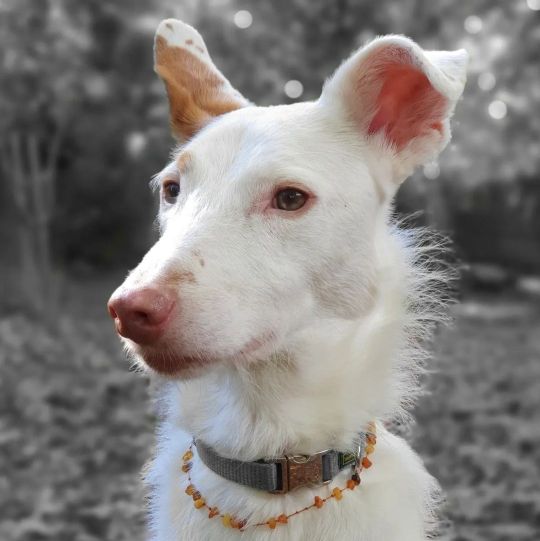
Happy World Vegan Day 💚💚💚 be the voice for the voiceless, never stop fighting for equity #govegan and be the change you want to see in the world 🦋🐝🐄🦊🐖🐏🐃🐭🐘🐣🦆🐥 #stopspeciesism #spreadlove ❤❤❤ #worldveganday #weltvegantag #bethechange #compassion #stopanimalcruelty #begrateful #crueltyfreefood #crueltyfree #spreadlovenotwar https://www.instagram.com/p/Ckbw70YqQ-g/?igshid=NGJjMDIxMWI=
#govegan#stopspeciesism#spreadlove#worldveganday#weltvegantag#bethechange#compassion#stopanimalcruelty#begrateful#crueltyfreefood#crueltyfree#spreadlovenotwar
0 notes
Text
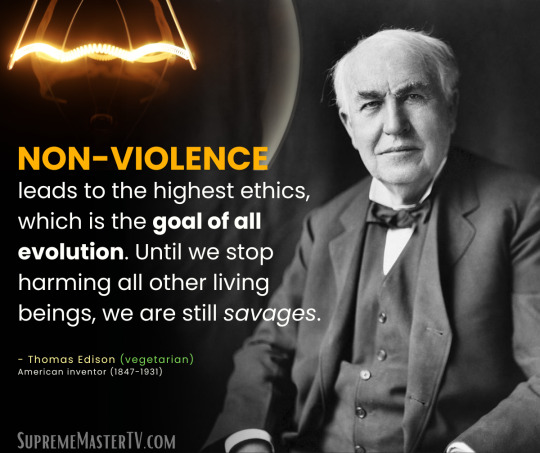
Non-violence leads to the highest ethics, which is the goal of all evolution. Until we stop harming all other living beings, we are still savages.
Thomas Edison (vegetarian)
American inventor (1847-1931)
🌿 Be Vegan, Make Peace 🕊 Do Good Deeds 💗
SupremeMasterTV.com
#SupremeMasterTV#NonViolence#EthicalLiving#CompassionMatters#LiveKindly#RespectAllLife#AnimalRights#VeganPhilosophy#ChooseCompassion#BeTheChange#InventorQuotes#LiveWithLove#StopAnimalCruelty#VeganEvolution#InspiringQuotes#ThomasEdison
3 notes
·
View notes
Text
https://whydonate.nl/fundraising/help-the-sweet-animals/en/
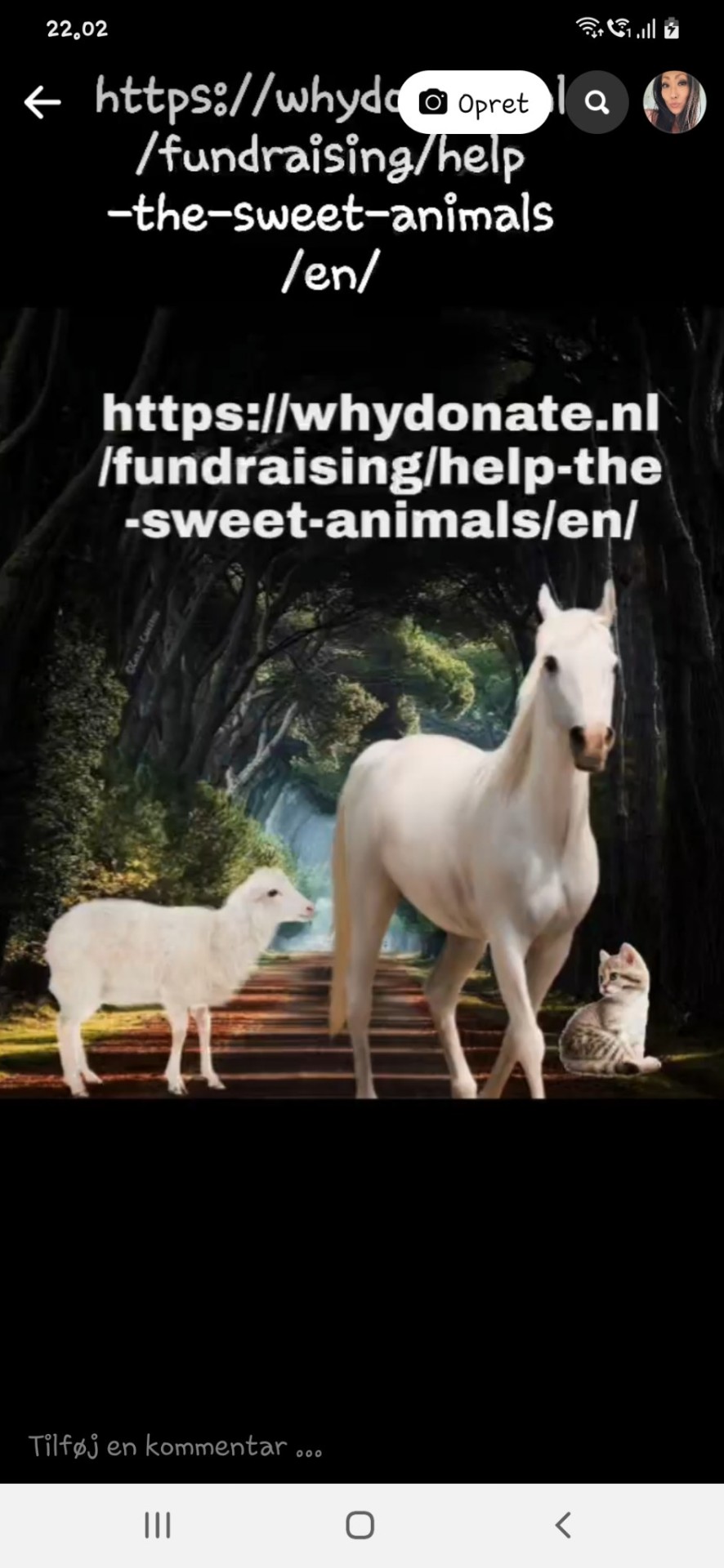
0 notes
Video
#fuerdietiere #wesupportanimalrights #peaceforallanimals #gegentierausbeutung #gegentiermissbrauch #gegentiertransporte #stopanimaltesting #gegenirrsinnigetierversuche #stopanimalabuse #stophuntinganimals #stopanimalcruelty #schaunichtweg #schliessungallerschlachthäuser https://vm.tiktok.com/ZMNMN95aV/?k=1 (hier: Switzerland, Schweiz) https://www.instagram.com/p/CfPwlRjo0Pk/?igshid=NGJjMDIxMWI=
#fuerdietiere#wesupportanimalrights#peaceforallanimals#gegentierausbeutung#gegentiermissbrauch#gegentiertransporte#stopanimaltesting#gegenirrsinnigetierversuche#stopanimalabuse#stophuntinganimals#stopanimalcruelty#schaunichtweg#schliessungallerschlachthäuser
0 notes
Text
instagram
#etsy#etsyseller#luzdelunabysigrid#etsyshop#smallbusiness#etsysellersofinstagram#stainlesssteel#pines#pincollector#pins#dogslovers#stopanimalcruelty#Instagram
0 notes
Photo

#Repost @yvcare.in —— पशु क्रूरता, मांस और डेयरी उत्पादों की कीमत है। हमारे भोजन के लिए हर साल अरबों जानवर मर जाते हैं। क्या हो अगर उन्हें यह सब नहीं करना पड़े? मांस और डेयरी उद्योग में पशु दुर्व्यवहार आदर्श है। जानवरों को हमारे भोजन के लिए अकल्पनीय क्रूरता के अधीन किया जाता है, वे अपने जीवन के हर एक क्षण में कष्ट झेलते हैं। वे हमारे लालच के लिए सीमित, दुर्व्यवहारित, शोषित और वध किए जाते हैं। लेकिन ज्यादातर लोग किसी को मारना, यातना देना या नुकसान पहुंचाना नहीं चाहते, यहां तक कि जानवरों को भी नहीं। फिर वे मांस और डेयरी उत्पादों का सेवन क्यों करते हैं? अधिकांश उपभोक्ता जानवरों का वध नहीं करते हैं, वे इसे सुपरमार्केट या कसाई से खरीदते हैं। इससे उनके लिए यह भूलना आसान हो जाता है कि उनकी प्लेटों में जो माँस, मुर्गे और मछली के टुकड़े हैं, वे भी कभी किसी जीवित प्राणी के हिस्से थे। वे डेयरी उद्योग के क्रूर प्रक्रियाओं को नहीं देखते हैं। उनका दूध, चीज़ और पनीर अच्छी तरह से पैक होकर आता है। मांस और डेयरी उद्योग अपने मुनाफे के लिए हमारे फैसलों, हमारी सोच-समझ में हेरफेर करते हैं। समाज ने हमें यह सोचने के लिए तैयार किया है कि यह सामान्य है, और इनके विज्ञापन भी भ्रामक होते हैं। ऐसा करने का कोई नैतिक या मानवीय तरीका नहीं है। यदि हम इनमें से किसी भी उत्पाद का सेवन करते हैं, तो हम भी इन निर्दोष, संवेदनशील प्राणियों के अनावश्यक शोषण और इनकी हत्या में एक अहम भूमिका निभाते हैं। स्वाद और आनंद का क्षण क्या इस क्रूरता के क़ीमत पर चाहिए? हमारे पास दुनिया को बदलने की शक्ति है, बस हमारी थाली में जो है उसे बदल कर। आइए दयालुतापूर्ण चुनाव करें, वीगन (निरवद्य) जीवन शैली को अपनाएं। #yvcare #yvcarein #vegan #veganism #veganvaad #veganhindi #veganIndia #vegano #veganlifestyle #plantbased #veganfood #govegan #eathealthy #animalequality #animalcruelty #stopanimalabuse #animalprotection #crueltyfree #stopanimalcruelty #meatismurder #endspeciesism #bekindtoeverykind #choosecompassion #fllowforfollowback @yvcare.in https://www.instagram.com/p/CdnaAz6Jrs7/?igshid=NGJjMDIxMWI=
#repost#yvcare#yvcarein#vegan#veganism#veganvaad#veganhindi#veganindia#vegano#veganlifestyle#plantbased#veganfood#govegan#eathealthy#animalequality#animalcruelty#stopanimalabuse#animalprotection#crueltyfree#stopanimalcruelty#meatismurder#endspeciesism#bekindtoeverykind#choosecompassion#fllowforfollowback
0 notes
Text
AnimalAbuse#AnimalCruelty#StopAnimalAbuse#StopAnimalCruelty#EndAnimalAbuse#EndAnimalCruelty
2 notes
·
View notes